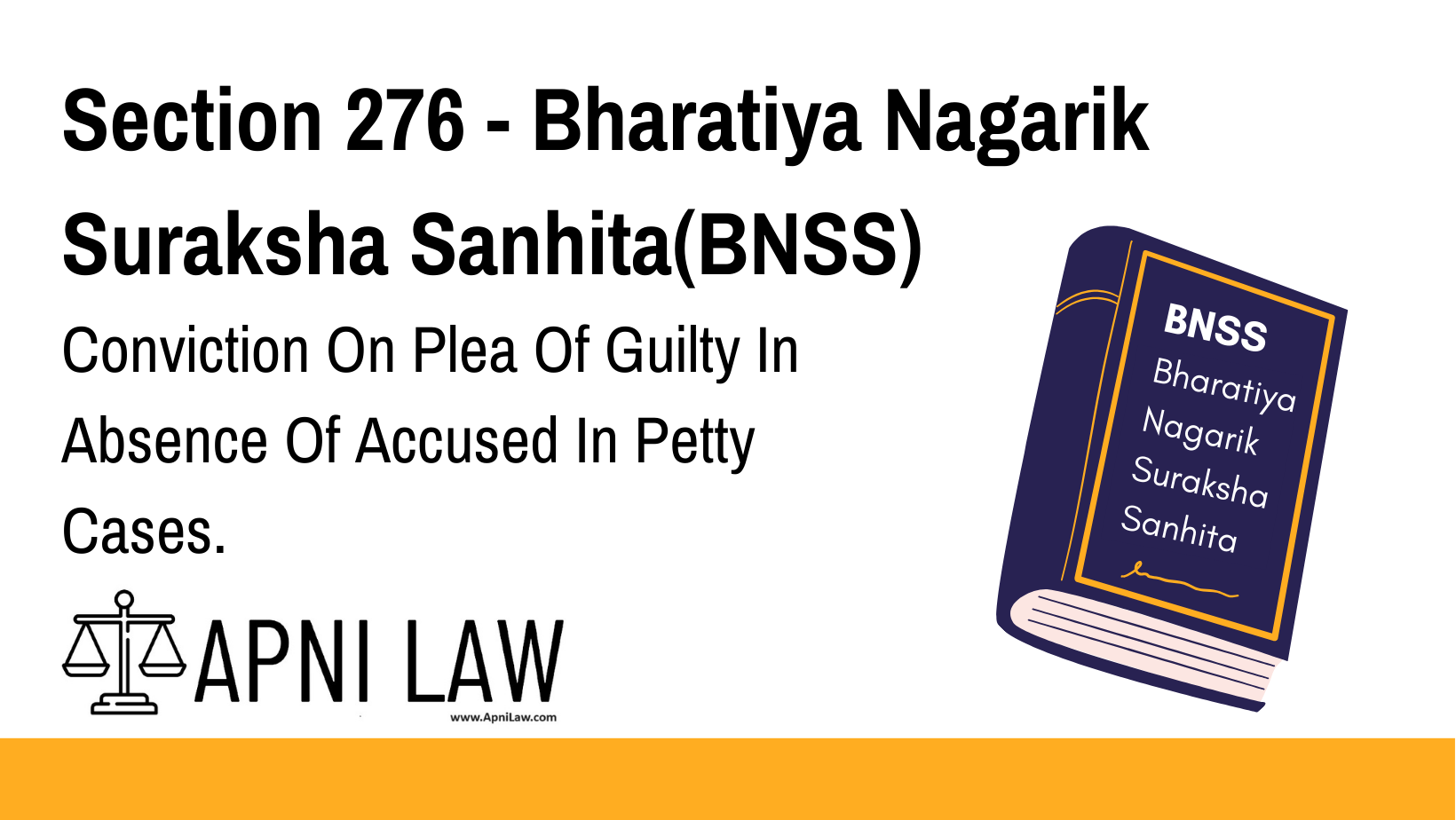Bharatiya Nagarik Suraksha Sanhita (BNSS) – Section 276
Code:
(1) Where a summons has been issued under section 229 and the accused
desires to plead guilty to the charge without appearing before the Magistrate, he shall
transmit to the Magistrate, by post or by messenger, a letter containing his plea and also the
amount of fine specified in the summons.
(2) The Magistrate may, in his discretion, convict the accused in his absence, on his
plea of guilty and sentence him to pay the fine specified in the summons, and the amount
transmitted by the accused shall be adjusted towards that fine, or where an advocate
authorised by the accused in this behalf pleads guilty on behalf of the accused, the Magistrate
shall record the plea as nearly as possible in the words used by the advocate and may, in his
discretion, convict the accused on such plea and sentence him as aforesaid.
Explanation:
This section deals with the procedure for a person accused of an offence under the BNSS to plead guilty without appearing before the Magistrate. It outlines the following:
(1) If a summons has been issued under Section 229 of the BNSS, the accused can choose to plead guilty without appearing before the Magistrate.
In such cases, the accused must send a letter to the Magistrate by post or messenger. This letter should contain their plea of guilty and the amount of fine mentioned in the summons.
(2) The Magistrate has the discretion to convict the accused in their absence based on their plea of guilty.
The Magistrate can sentence the accused to pay the fine specified in the summons.
The amount transmitted by the accused will be adjusted towards the fine.
If a lawyer authorized by the accused pleads guilty on their behalf, the Magistrate will record the plea in the lawyer’s words. The Magistrate can then convict the accused and sentence them to pay the fine.
Illustration:
Suppose a person receives a summons under Section 229 of the BNSS for violating a traffic rule. They wish to plead guilty and pay the fine without appearing in court. They can send a letter to the Magistrate acknowledging their guilt and enclosing the amount of fine specified in the summons. The Magistrate can then convict the accused and accept the fine without requiring the accused’s physical presence.
Common Questions and Answers:
- Q: Can I choose to plead guilty even if I am not actually guilty?
- A: It is important to understand that pleading guilty means accepting responsibility for the offense. If you are not guilty, you should not plead guilty, even if it seems convenient. Instead, you should consult with a lawyer and explore your legal options.
- Q: Can the Magistrate reject my plea of guilty even if I send the letter?
- A: While the Magistrate has the discretion to convict, they may choose to reject your plea if they have reason to believe that it was not a genuine or informed decision. For example, they may require your physical presence if they suspect the plea was coerced or if they need to clarify any issues related to the case.












